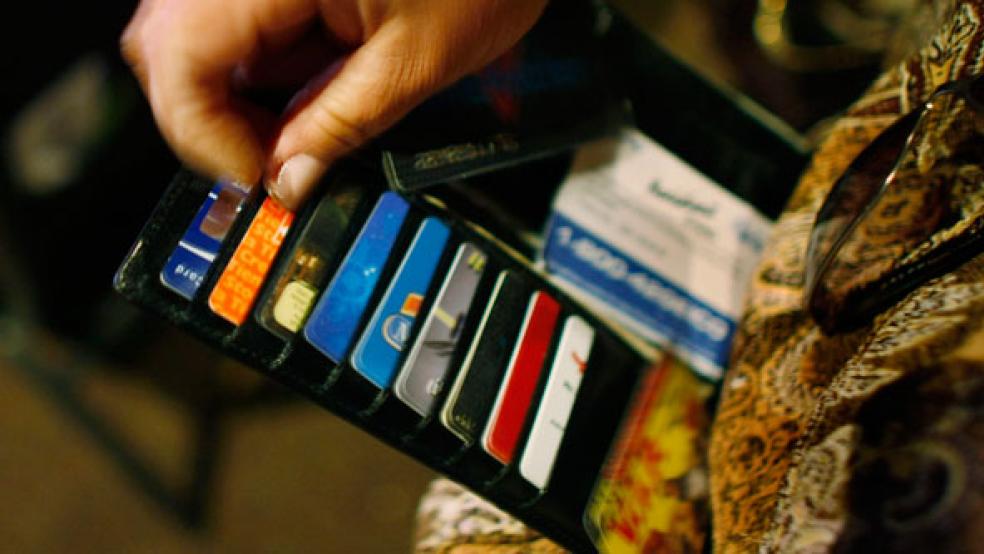If you were handed $100, chances are you wouldn’t toss it in the garbage. But that’s basically what many Americans are doing when they fail to use a rewards card or aren’t optimizing the rewards they’re earning.
A new study from the consumer finance site NerdWallet found that even though almost three quarters of Americans understand credit card rewards are valuable freebies, around one third don’t actually understand how to earn those rewards. Roughly a third also said they are confused by credit card fees.
That’s understandable — it’s not like the fees are always presented clearly or that applying for rewards is universally simple and straightforward.
But once you’ve figured out how to maximize your rewards, you could earn back hundreds of dollars — one study reported by Bankrate found that adults who charge an average of $1,200 a month on groceries, restaurants and clothing could earn back $145 a year. Of course, how much you earn back depends on what card you’re using and the program you’re enrolled in.
Related: Why Credit Card Companies Are Giving Money Away – and How to Get Some
If you don’t really know how your card’s rewards system works or you don’t even use a rewards card, it’s time to re-evaluate what’s in your wallet. In an interview, Sean McQuay, a credit card expert at NerdWallet, detailed four common mistakes that consumers are making with their rewards credit cards and how they can be fixed:
1. You don’t have a rewards card. McQuay says that some people are choosing to forgo rewards cards because they think they’re too expensive. But these people may also be underappreciating the upside of the reward offers. “In some cases, the benefits can dramatically outweigh the costs,” McQuay says.
To calculate whether it’s worth it for you, McQuay recommends conducting a simple cost-benefit analysis. If you pay off your credit card bill each month, then the fee is probably worth it. But if you carry an unpaid balance, then you should do some math to see if having the card pays. In general, “any rewards from a rewards-oriented card would be quickly buried by the cost of that debt,” McQuay says.
2. You aren’t choosing the right card. Any rewards card that you choose needs to fit your profile in order for you to maximize your benefits. If you’re looking for a card, McQuay suggests employing the “earn and burn” method. First, you need to figure out where your dollars are actually going and then find a group of cards that’ll earn you the most points possible. So if you spend a lot on, say, groceries or travel, find cards that offer hefty rewards for those purchases. Then look at where you can burn those points. Do you want to get cash back? Specific deals? Make sure the rewards offered match up with your desires.
Related: Credit Card Debt Is Soaring Again – Here’s How Much We Owe
3. You aren’t optimizing your points. Although there isn’t one optimal time to redeem your rewards or points, you should do some calculations before claiming your rewards to make sure you’re getting the best deal possible. McQuay says to determine whether a reward like a flight or a hotel stay is a good deal, divide the dollar value by the number of points it requires. Then compare that per-point cost to other flights or hotel stays that you could book.
Points can vary up to 200 percent in value, depending how you redeem them, McQuay says. “It’s not a factor of time or waiting, it’s finding the right deal,” he says. So don’t just redeem your rewards without doing some math first.
4. You’re wasting time with a gasoline rewards card. While the popularity of gas cards is waning, one in 10 Americans reported carrying at least one of these cards in the NerdWallet study. These cardholders could be getting a much better deal with a general purpose card.
Because the typical gas card offers rewards equivalent to about 4 cents per gallon, gas prices would need to fall to at least $1.20 per gallon in order for gas cards to provide more generous rewards than a general purpose card that offers 3 percent cash back. General purpose cards are different from gas cards because they give back a certain percentage of the price you pay for gas, meaning the rewards grow as the price of gas goes up.
The national average price of gas as of May 19 is $2.62 and the average has remained above $2 a gallon for at least a month with no signs of dropping back down. “These cards don’t make sense for Americans today,” McQuay says. “I don’t know anywhere in the U.S. where people can get gas that cheap.”





